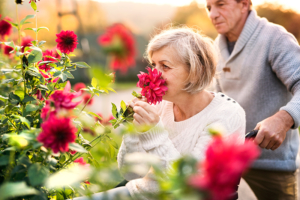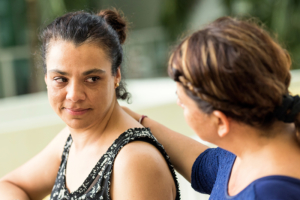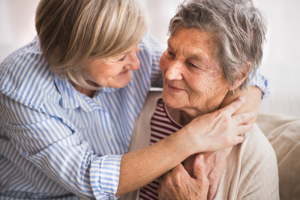How Male Caregivers Can Find More Support

Consider a partner like Responsive Home Care for trusted respite care services.
If you were asked to paint a picture of a typical family caregiver, you’d likely portray a middle-aged woman, perhaps preparing a meal, helping with bathing or getting dressed, transporting a loved one to medical appointments. And your assessment would be accurate; AARP reports the typical caregiver profile is a 49-year-old female performing acts of service such as these for a 69-year-old female relative facing long-term health concerns.
However, there’s a growing trend of men stepping into – or sometimes, falling into by default – the role of caregiver: nearly 40% of all caregivers, in fact. And while there are some trending differences in caregiving difficulties between the genders (such as a higher likelihood of discomfort for men in performing personal care tasks), all caregivers, regardless of gender, need a strong system of support.
Edwin Walker, deputy assistant secretary for aging at the U.S. Department of Health and Human Services (and a family caregiver himself), emphasizes the importance of peer support for male caregivers, who are often reluctant to share their feelings and concerns. Carving out time to enjoy favorite pastimes and hobbies with friends, seeking the assistance of a professional counselor, or joining a caregiver support group are several ways male caregivers can maintain their own emotional and physical health in order to provide the best care for their loved ones.
And if no support system is in place for male caregivers, one option is to start a new one. One such innovative male caregiver support network was created by several men who unexpectedly found themselves in caregiving roles. The men get together on a regular basis for outings, dinners, or just a cup of coffee and conversation.
Another form of support for male caregivers to consider is to partner with a reputable in-home care agency, like Responsive Home Care, for trusted respite care services that allow for much-needed breaks from care. Call us at 954-486-6440 to learn more about how we provide the kind of home health services Fort Lauderdale, FL families recommend most. To learn more about the other areas we serve in Florida, please visit our Service Area page.




 There’s no question that it’s a great honor to care for family we love. Family caregivers experience a closeness and connection with those in their care that generally far outweigh the difficulties. Yet unfortunately there are also difficulties. A continuous to-do list to make certain the person you’re providing care for is as healthy and happy as possible. Household duties and errands to manage. Career responsibilities. The requirements of other relatives and friends. And don’t leave out self-care.
There’s no question that it’s a great honor to care for family we love. Family caregivers experience a closeness and connection with those in their care that generally far outweigh the difficulties. Yet unfortunately there are also difficulties. A continuous to-do list to make certain the person you’re providing care for is as healthy and happy as possible. Household duties and errands to manage. Career responsibilities. The requirements of other relatives and friends. And don’t leave out self-care.





